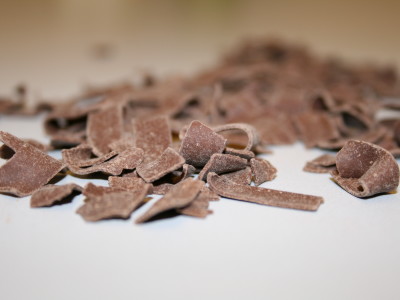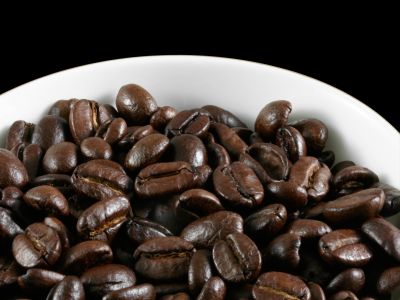Nestle aims to sell diabetes medicine while selling sugar confectionery

Mixed chocolate and dairy productsMilk chocolateThe reason why we developed was "Sweet food company" known for "Kitcut" of chocolate confectionery and "Nescafe" of instant coffee "Nestle"is. It was revealed that Nestle aims to sell diabetes medicine etc while selling sugar confectionery such as chocolate.
Nestlé's Sugar Empire Is on a Health Kick - Bloomberg
http://www.bloomberg.com/news/features/2016-05-05/nestl-s-sugar-empire-is-on-a-health-kick
Nestle is the world's largest food company. It employs 335,000 people, has more than 2000 food brands, manufactures its own brand food at 436 factories in 85 countries. It is the most valued company in Europe and its corporate value is over 240 billion dollars (about 26 trillion yen) and it is a big oil companyShellAlso surpasses. There are 195 countries in the world, but in fact 189 countries Nestlé sells goods, and Nestle has been able to influence the food culture around the world so much that it can not talk about the history of food without Nestle It was.
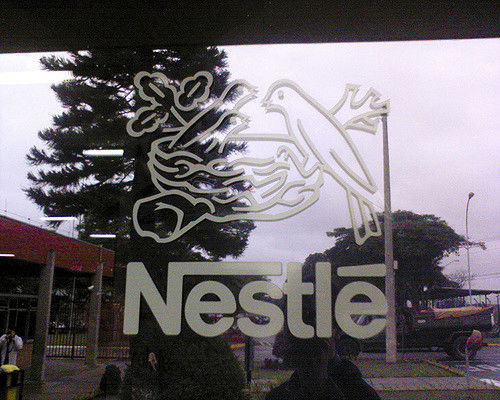
ByPedro Angelini
For example, in the Nestle founderHenri NestleHas been producing "dairy products for infants" in Vevey, Switzerland, and is working to resolve the high mortality rate of infants. In addition, Henri Nestle has developed powdered milk, which leads to the creation of food milk chocolate rather than drink. Furthermore, Nestle scientists are developing the world's first instant coffee during the Second World War.
Nestle's food and drinks include mineral waterSamperegrinoYaStoufferFrozen foods are also included. "Kit cut" and "Nescafe" are also products of Nestle, and in the United States and Canada "Haagen Dazs" are also manufactured and sold by Nestle affiliates. And, the foundation of Nestlé's products is "sugar" to the last.
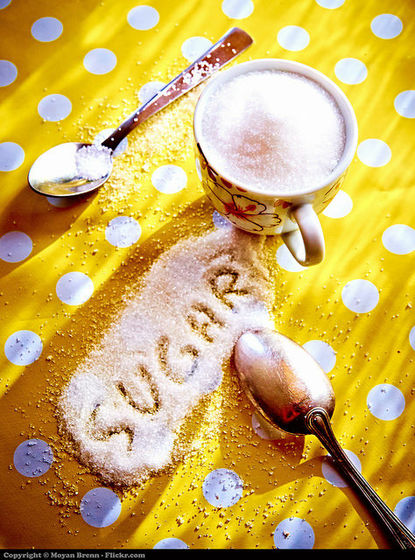
ByMoyan Brenn
The headquarters of Nestle is the biggest building in Switzerland's Veuvre, and it looks like a hospital that is above average level. And from the office it is a wonderful landscape that overlooks Lake Geneva and the Alps Range wrapped in fog. "This landscape continues to prove that sugar is sweet for more than a century and a half,"Bloomberg.
In Mexico, sugar tax has been introduced to counter obesity, but in the year 2016 Britain can do similar taxation measuresAnnouncementIt was done. In Saudi Arabia, it is reported that similar policies can be taken. America'sFood and Drug Administration(FDA) regulates labeling according to the amount of sugar, the latest version of thisDietary GuidelinesIt is published as.
According to the research published by the National Institute of Science in France in 2013, sugar and confectionery are "not only able to replace addictive drugs like cocaine, they are more appealing for regular users It is said that "can become" and in recent years the dangers of sugar are whispering. However, sugar does not clearly have an adverse effect on behavior and psychological aspects. Against this backdrop, sales of Nestle's confectionery industry have been falling since 2012 in the same way as other competitors in the same industry.
The confectionery industry is frightened by the possibility that sugar is regulated like tobacco, Coca-Cola reduces the size of can juice, Oreo manufacturers develop gluten-free foods and shift to shift to health doing.
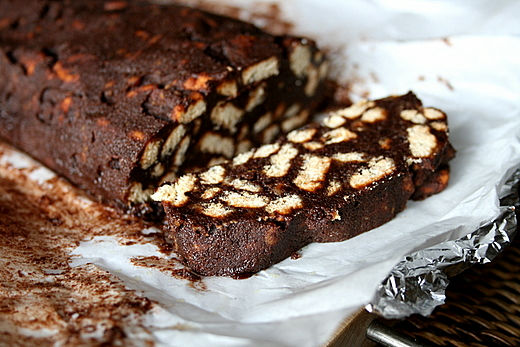
ByFrancescaV.com
On the other hand, Nestlé has chosen fundamentally different policies. Nestle has chosen to advance into the pharmaceutical industry and aims to sell medicinal products like snacks rather than tablets based on ingredients derived from food. In addition, Nestlé's strategy has already been started, and some drugs are already on the shelves.
Nestlé's goal is "Nutrition · health · wellness companyIt is to redefine our company as. And if Nestlé's vision is realized, the future will come within 10 years to eat delicious sweets (such as a medicine looking like) made by Nestle in heart disease medicine.
Of course Nestle never throws away the main business of confectionery, so if Nestle succeeds in the drug industry, we will finish the loop of selling medicines to keep health while selling confectionery that is harmful to health Become.
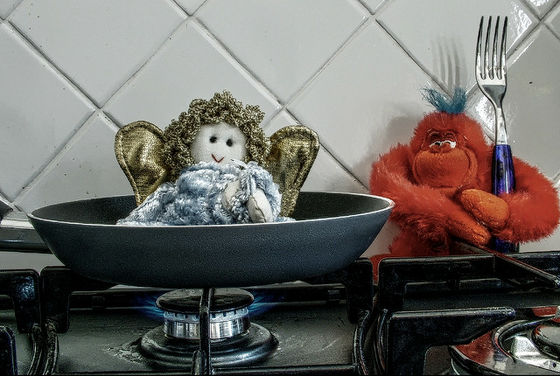
ByDavide Aversa
Mr. Ed Beetgue, who works at Nestlé's Health Sciences Institute, is a person who has been working on the treatment of diabetes and Nestlé has given him a budget of 500 million Swiss francs (about 56 billion yen) in 10 years. There are over 160 scientists working under Mr. Beetgue, and research on various fields such as muscle growth and Alzheimer's disease is under way.
Beetgue said, "Food is the basis of a completely new type of drug treatment in" preventive treatment "and" treatment of acute diseases "," said that "food can relieve symptoms of chronic diseases such as diabetes, I am aiming for "the aim of the aim. Mr. Betgege said, "Nestlé's idea is to overturn the existing pharma model, so the problem is how to make food work like a medicine," the problem is.
What is being done at the laboratory is "something like dispensing," Mr. Beetge. "Work like sifting natural substances obtained from food," he said he is actually looking for ingredients effective for disease from mushrooms, tomatoes and other foods. Actually, the research team led by Mr. Beetghee has produced more than 4000 compounds and is library. Mr. Beetgue's aim is to design and prescribe suitable medicines for each using the individual's diet and health history data.
As an image you can have various types of coffee with one "Nespresso"It seems that it is aiming to prescribe various kinds of medicines easily.
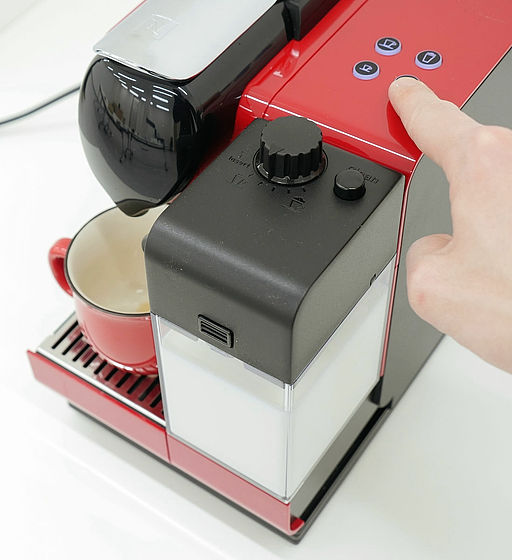
Mr. Beetgue's advice on Nestle's health sciences is "business that can expect sales of 10 billion Swiss francs (about 1.11 trillion yen) annually," said Nregle Greg Behr. Nestlé's annual sales in 2015 for the confectionery sector is about 9 billion Swiss francs (about 1 trillion yen), the dairy and ice cream division is 15 billion Swiss francs (about 1.7 trillion yen), the powder and liquid drink division 190 Considering that it is 100 million Swiss francs (about 2.1 trillion yen), it is clear that even the largest food company in the world has a negligible level of sales.
Mr. Beetgue's research findings are not linked to commercialization at the moment, but "This situation will change soon," Mr. Beaer says. Although Mr. Beetgue's research results are not useful, it is likely that the pharmaceutical division has already raised about 2 billion Swiss francs (about 220 billion yen) annually.
Indeed, Nestlé has epilepsy patients with milk-like drink "Betaquik"Beverage for recovery of fatigue and muscle function"Meritene Regenervis"High protein drink for cancer patients"Resource Support Plus"We sell such products.

Of course, Nestlé's health efforts will continue in the future. And this is definitely going to be a battle against skepticism of something for government and consumers' definition of "health food" for those that are misleading.
Related Posts:

